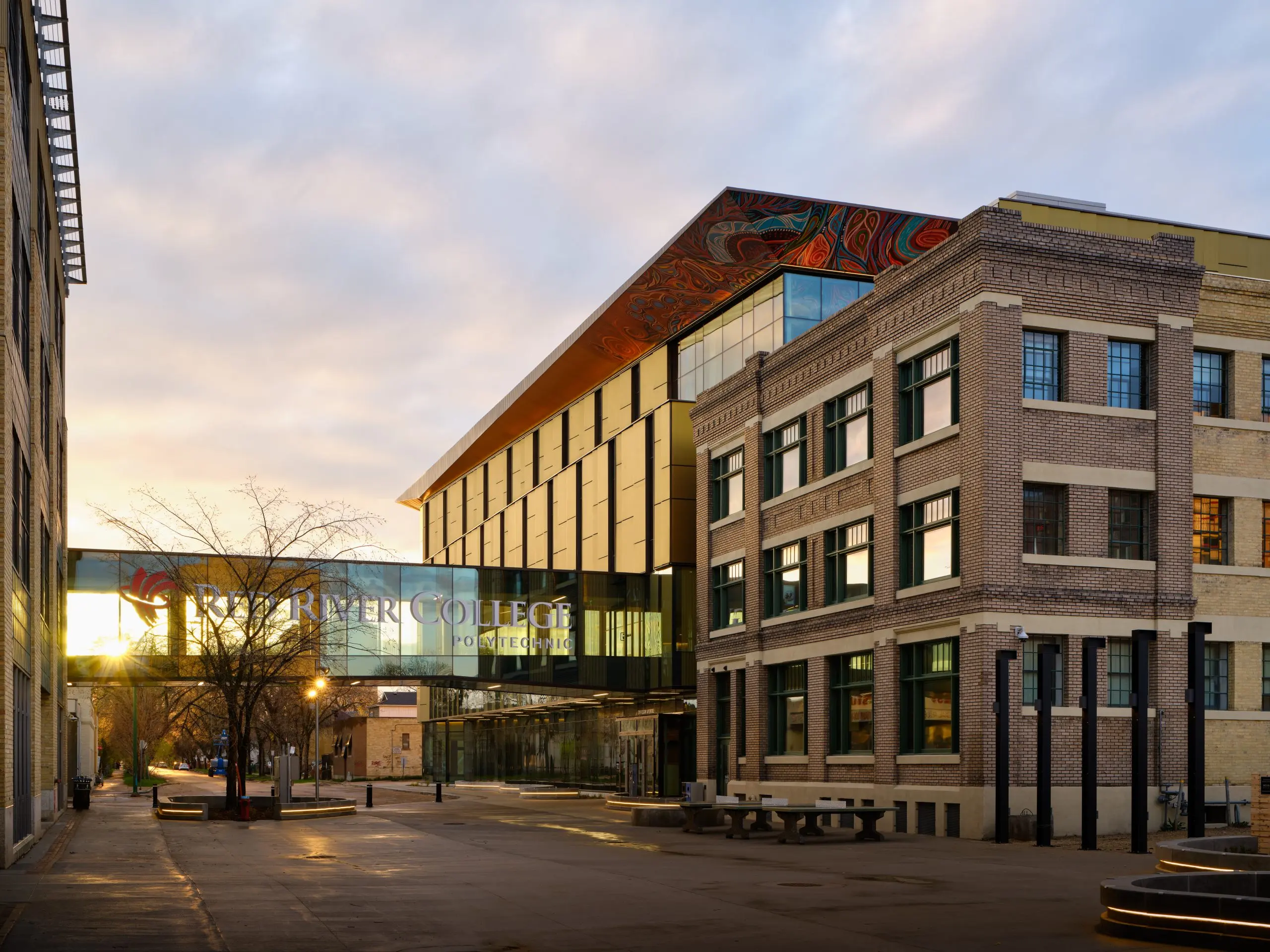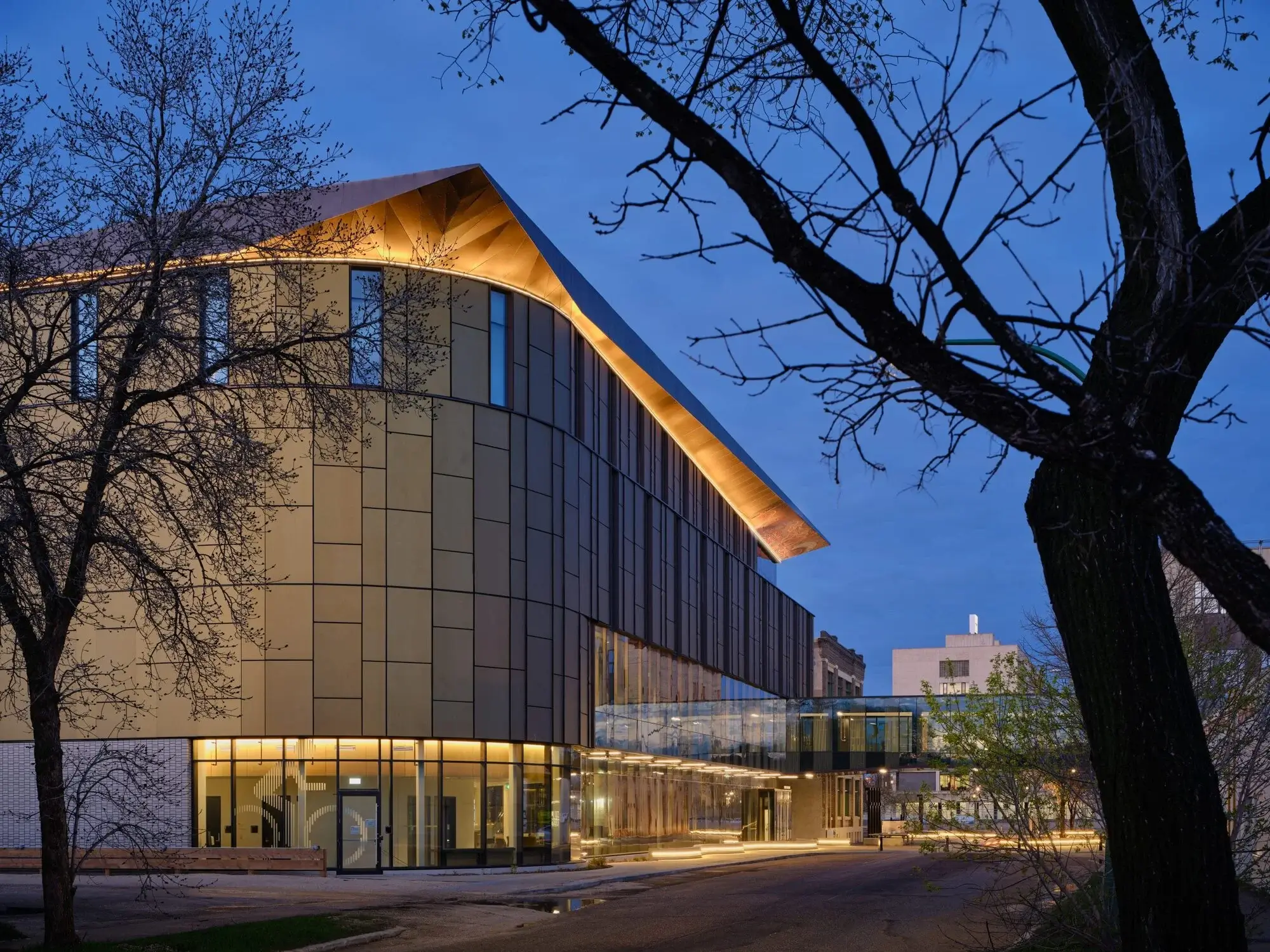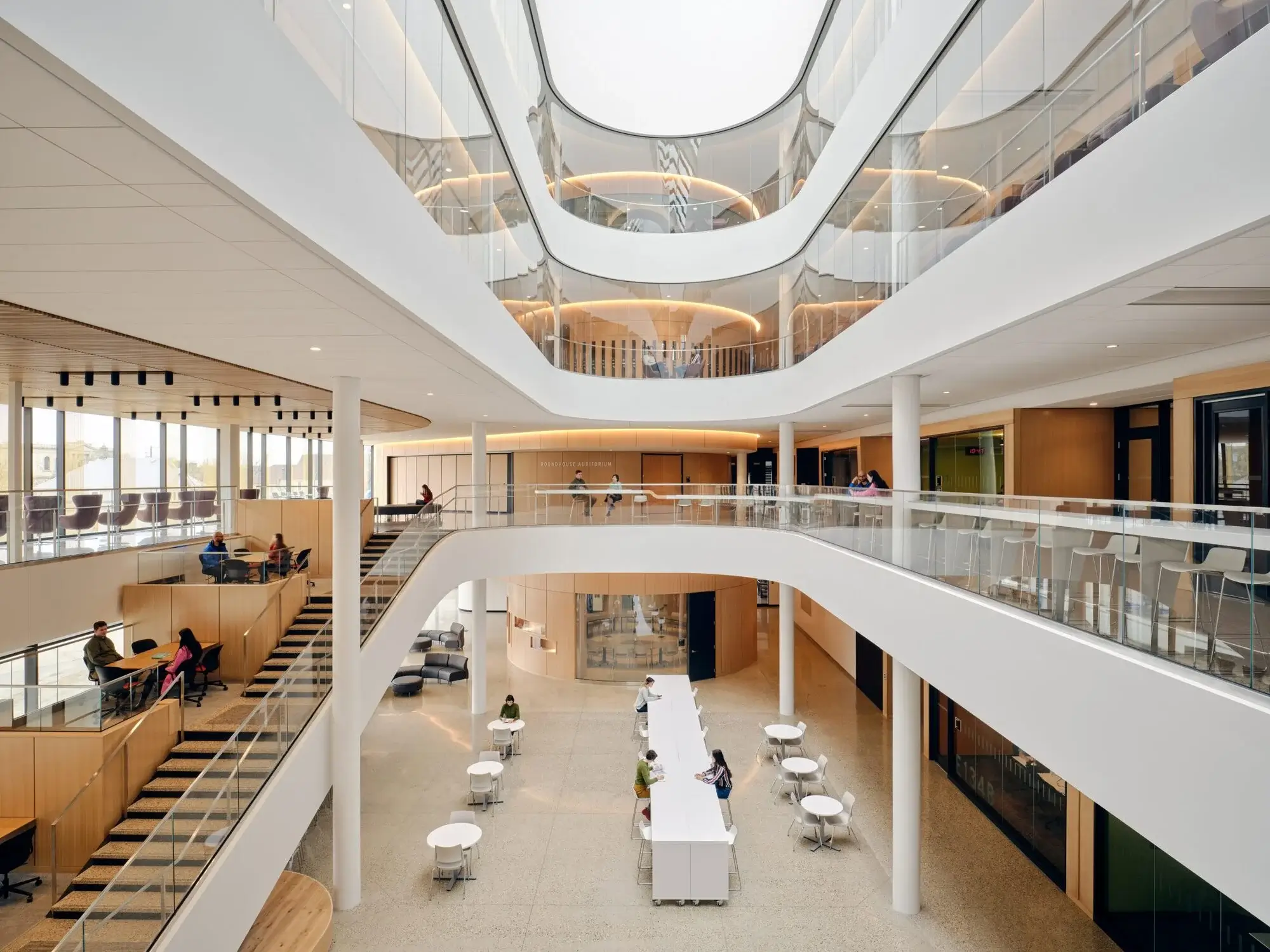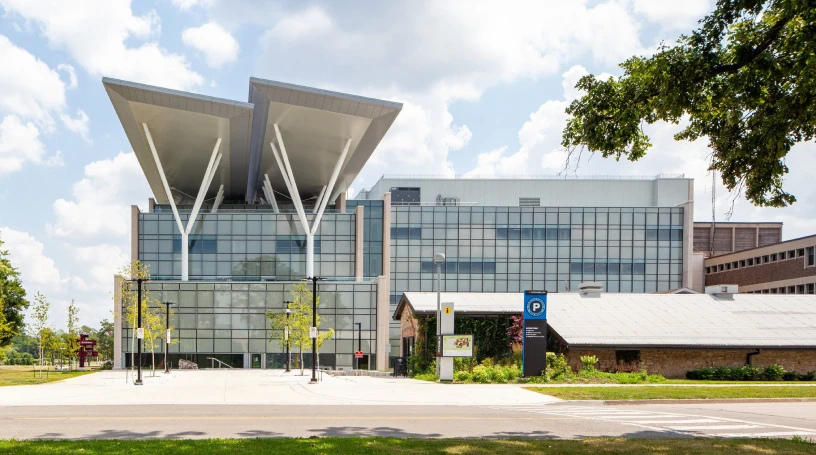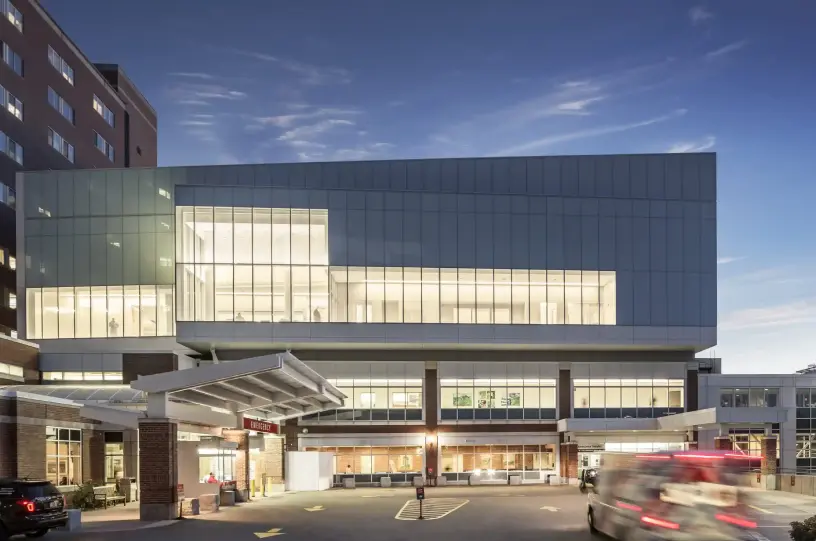By combining the rehabilitated historic Scott Fruit warehouse with a new 100,000 sq. ft., four-story addition, the building reflects the progress and innovation of the surrounding Exchange District. Designed as a sustainable, modern, and adaptable facility, the centre supports advanced learning and evolving educational technologies.
Diamond Schmitt Architects retained us in October 2017 to help develop strategies for achieving near-net-zero energy performance and LEED v4 Gold certification. Meeting these ambitious goals would make the Innovation Centre one of Red River College’s most energy-efficient buildings to date.
Our team provided design-assist energy modeling in support of the near-net-zero mandate. We also served as the Building Enclosure Consultant for the new addition, advising on high-performance wall and window systems, and provided heritage consulting and masonry testing for the existing warehouse. Through our energy modeling work, we confirmed the building’s compliance with both the Manitoba Energy Code for Buildings and the Manitoba Green Building Program (MGBP). Our detailed analysis of occupancy patterns and internal loads enabled us to develop highly targeted recommendations for energy efficiency, in pursuit of a net-zero-ready design.
To support the LEED v4 Gold certification effort, our team guided the design and construction teams in integrating sustainability objectives into construction practices and documentation. This involved coordinating across disciplines to embed green strategies into both the design intent and execution.
As part of our measurement and verification services, we helped develop a robust measurement and verification (M&V) plan, including the design of the metering layout. These measured data points were vital in evaluating actual building performance and proved helpful for diagnosing operational issues post-occupancy.
Our RDH Building Science Laboratories (BSL) team conducted testing to assess the condition and suitability of the heritage masonry for interior insulation. Tests included evaluating liquid water uptake, dry density, vapor permeability, porosity, and freeze–thaw saturation. These results informed our recommended retrofit approach for the historic structure.
The Innovation Centre was completed in 2022 and has since received multiple accolades, including the 2024 AIA Canada Society Community Engaged Design Award and an Honorable Mention in the SCUP/AIA-CAE Excellence in Architecture Award for New Buildings.
